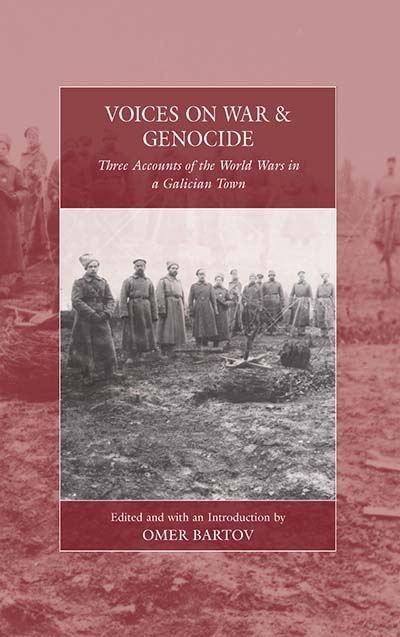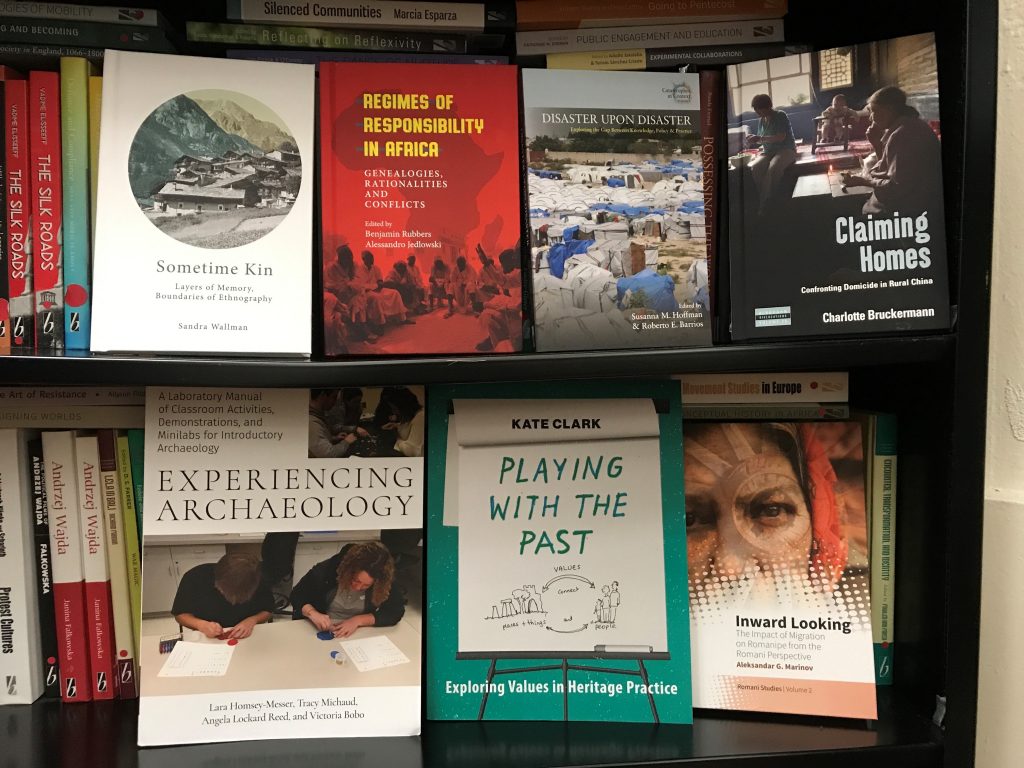19 November 2024

November 19th is International Men’s Day, which recognises “worldwide the positive value men bring to the world, their families and communities […] highlight[ing] positive role models and raise awareness of men’s well-being”. The official theme for 2024 is “Positive Male Role Models”. This information has been taking from the official site. You can read more on International Men’s Day from their website here.
In the spirit of this day, we have compiled some of our titles looking at men’s studies right below, but you can also browse our website by Subject: Gender Studies and Sexuality here for more.
Following that, we have put together a small collection of some of our open access titles looking at men’s studies. You can browse our full collection of Open Access Gender Studies here, all entirely free to read, as well as in other subjects.
Further down, we have also listed some relevant journals.
At the bottom of this blog, we have attached four recent and relevant external author materials, including a BBC article, a Telegraph article, an author podcast interview, and a university interview with editors.
Click here to expand text for the details.
- BBC article ‘The real reason for the rise in male childlessness’ by Stephanie Hegarty (November 2024) including research from Berghahn Books publication ‘How is a Man Supposed to be a Man?‘ by Robin A. Hadley.
- Author podcast from October 2024 by New Books Network, hosted by Dr. Miranda Melcher, interviewing author Dr Meghana Joshi on her recent Berghahn Books publication ‘Children are Everywhere‘.
- Interview from Arizona State University article as ‘ASU faculty member celebrates first anniversary of co-edited book […] anniversary coincides with International Day of the Girl Child, celebrating the importance of gender equality for children‘ (October 2024) on Berghahn Book ‘Girls in Global Development‘, and in conversation with its editors Heather Switzer, Karishma Desai, and Emily Bent.
- Telegraph article ‘The crushing truth about being childless at 64’ (November 2024) by Robin Hadley, author of Berghahn Books publication ‘How is a Man Supposed to be a Man?‘.
We have also attached six of our previous Berghahn Blog Materials that are tied to Men’s Studies.
Click here to expand text for more details.
- AUTHOR ARTICLE by Pamela Moss and Michael J. Prince on their Open Access book ‘Weary Warriors: Power, Knowledge, and the Invisible Wounds of Soldiers’.
- AUTHOR INTERVIEW with Theodoros Rakopoulos on his Open Access book ‘From Clans to Co-ops: Confiscated Mafia Land in Sicily’
- AUTHOR ARTICLE ‘Clothes, Men, Instagram – suits you sir’ by Joshua M. Bluteau, in relation to his book Dressing Up: Menswear in the Age of Social Media
- AUTHOR ARTICLE ‘Myths Around Men’ by Dr Robin A Hadley, in relation to his book ‘How is a Man Supposed to be a Man?: Male Childlessness – a Life Course Disrupted’
- BOOK EXCERPT ‘Does the Man Make the Motorcycle or the Motorcycle the Man?‘ by Sasha Disko from his book ‘The Devil’s Wheels: Men and Motorcycling in the Weimar Republic’
- BERGHAHN ARTICLE ‘A place for sexually variant and gender non-conforming America’ with three book recommendations.
Lastly, we want to highlight our ongoing sale, which some of the titles in this blog are included in.
Click here to expand text for more details.
In 2024, Berghahn Books is celebrating 30 years as a family-run press, and we want to thank you for your support! To celebrate, we are offering 30% off our top 30 all-time bestsellers in each of our biggest subjects. As well as 30% off our frontlist titles from January to June of 2024! Use code BERGHAHN30 for 30% off, available in all formats until December 31st, 2024.
Please click here to browse our full selection of titles on sale now!
Featured Books in Gender Studies looking at Men’s Studies

This title is currently on sale! enter code BERGHAHN30 in the cart for 30% off!
African Americans and Germany since 1933
Nadja Klopprogge
Intimate Histories focuses on intimate relations as sites of shared pasts connecting African American and German history in the years between 1933 and 1990. By tracing topics that include anti-miscegenation laws, forced sterilization, casual sexual encounters, marriage, and friendships, Intimate Histories broadens our understanding of African American–German relations during the so-called “century of extremes.”
Volume 12, Explorations in Culture and International History
Read freely available introduction here.

Fixing Motorcycles in Post-Repair Societies
Technology, Aesthetics and Gender
Gabriel Jderu
“The book draws attention to an overlooked area of mobility studies—repair and maintenance. It inventively demonstrates the social and political dimensions of technology and is especially attentive to gender distinctions and differences.” • Suzanne Ferriss, Nova Southeastern University
Volume 3, Politics of Repair
Read freely available introduction here.

A Papuan Nature
Marta Rohatynskyj
The practice of affiliating the female child with the mother and the male child with the father was considered a rare and inexplicable practice in Papua New Guinean ethnography at the time the original data was collected some forty years ago. Marta Rohatynskyj undertakes a shift in her analytical concepts of kinship studies to reveal the deep-seated disjuncture between female and male that this practice represents. The author argues that this practice is associated with a totemic/animistic ontology and has currency in a particular type of Melanesian society.
Volume 14, ASAO Studies in Pacific Anthropology
Read freely available introduction here.

Gender, Power, and Non-Governance
Is Female to Male as NGO Is to State?
Edited by Andria D. Timmer and Elizabeth Wirtz
“Focusing on the gendered nature of NGO-state relationships it offers a wide spectrum of case studies covering all regions of the world. Diversity is an important asset of the volume: diversity of countries-from different regions, of different sizes, from different type of states (weak or strong), but also diversity of types of NGOs analyzed, diversity of topics proposed.” • Laura Grünberg, University of Bucharest
Read freely available introduction here.

Football, Pentecostalism, and Transnational Aspirations in Cameroon
Uroš Kovač
“The author has not only written one of the few anthropological accounts exploring the relations between neoliberalism, Pentecostalism, masculinity, and the commercialization of professional sports, but also refutes too easily made assumptions about a crisis of masculinity affecting societies on the African continent and elsewhere.” • Journal of the Royal Anthropological Institute
Read freely available introduction here.

Gender and Status in Europe in the Middle Ages
Edited by Katherine Weikert and Elena Woodacre
“This is a stimulating collection overall that contains a number of well-written contributions inviting any reader to ask more questions. The book convincingly shows what paying attention to the construction of gendered identities can bring to our understanding of medieval societies, their texts, and objects.” • H-Soz-Kult
Read freely available introduction here.

How is a Man Supposed to be a Man?
Male Childlessness – a Life Course Disrupted
Robin A. Hadley
“a groundbreaking book shining the light on men and their experiences, how men may feel when they don’t end up having children for one reason or another e.g. not meeting the right person, infertility.” • Guild of Health Writers
Volume 48, Fertility, Reproduction and Sexuality: Social and Cultural Perspectives
Read freely available introduction here.

Masculinity, Sexuality, Nationality
Edited by Timothy Shary
“The organizational scheme is laudable—Shary includes essays on individual films, auteurs, decades, and national cinemas. Future works on boyhood in cinema could build on any of these organizational categories to contribute to this nascent field…Highly Recommended.” • Choice
Read freely available introduction here.

Modernity and the Unmaking of Men
Violeta Schubert
“This book contains a wealth of ethnographic detail on kinship, marriage, and masculinity in rural Macedonia in the post-Socialist period. With her focus on “the village scape,” Schubert adds fresh insights to understandings of modernity and the state.” • Deborah Reed-Danahay, University of Buffalo
Volume 1, New Anthropologies of Europe: Perspectives and Provocations
Read freely available introduction here.

Motivation, Morale, and Masculinity among Czech Soldiers in the Great War, 1914–1918
Jiří Hutečka
“Hutečka accomplished his goal of using gender to illuminate Czech soldiers’ motivation. He deserves praise for writing an effective and useful book that should be read by students and historians of gender and war.” • Journal of Military History
Volume 26, Austrian and Habsburg Studies
Read freely available introduction here.

Masculinity, Sexuality, and Biosociality in Denmark
Sebastian Mohr
“An important, original contribution to the anthropology of reproduction. Mohr does an excellent job of presenting multiple, fascinating perspectives on this subject. The ethnographic material is superb and his framing of it is appropriate and convincing.” • Linda Layne, University of Cambridge
Volume 40, Fertility, Reproduction and Sexuality: Social and Cultural Perspectives
Read freely available introduction here.

Love and Marriage, Family and Care in Precarious Times
Edited by Marcia C. Inhorn and Nefissa Naguib
“This volume is an important correction to various types of literature, from within anthropology as well as from other disciplinary fields… it will become a significant contribution to the field of masculinity in general and to Muslim men in particular.” • Leif Manger, University of Bergen
Volume 38, Fertility, Reproduction and Sexuality: Social and Cultural Perspectives
Read freely available introduction here.
Edited by Marcia C. Inhorn and Nefissa Naguib
Open Access Books in Gender Studies looking at Men’s Studies
Here are some of our relevent open access titles. Browse our full collection of Open Access Gender Studies here, all entirely free to read.
From Our Blog: Author interviews, author articles, excerpts…

Pamela Moss and Michael J. Prince
Open Access
“Gaining insight into the effects of various configurations of power and knowledge, including future analyses of moral injury, toxic masculinity, structural racism, and political extremism, can open up more space to address the restrictions imposed on the burned-out soldiers’ minds, bodies, and souls.”

Myths around Men
by Dr Robin A Hadley
“There are many myths around men, manhood and masculinity when it comes to both age and reproduction.”

Does the Man Make the Motorcycle or the Motorcycle the Man? by Sasha Disko
“[I]n the discourse of motorcycling as a whole, proper masculinity was rhetorically disassociated from conspicuous consumption. The act of masculine consumption was concealed behind the twin pillars of modern manliness: production and possession”
Berghahn Journals

JOURNAL OF BODIES, SEXUALITIES, AND MASCULINITIES
Editors:
Jonathan A. Allan, Brandon University, Canada
Chris Haywood, Newcastle University, UK
Frank G. Karioris, University of Pittsburgh, USA
JBSM is a new peer-reviewed interdisciplinary journal that brings together critical studies of men and masculinities and sexuality studies. Its remit is to bring these two fields together to better understand the complexities of masculinities and sexualities, and especially the way they intersect with one another.
Current Issue: Volume 5, Issue 1: Viral Masculinities. Guest Edited by João Florêncio

BOYHOOD STUDIES
An Interdisciplinary Journal
Interim Editors:
Jonathan A. Allan, Brandon University
Chris Haywood, Newcastle University
Boyhood Studies: An Interdisciplinary Journal is a peer-reviewed journal providing a forum for the discussion of boyhood, young masculinities, and boys’ lives by exploring the full scale of intricacies, challenges, and legacies that inform male and masculine developments. Boyhood Studies is committed to a critical and international scope and solicits both articles and special issue proposals from a variety of research fields including, but not limited to, the social and psychological sciences, historical and cultural studies, philosophy, and social, legal, and health studies.
Current Issue: Volume 17, Issue 1: Global South Perspectives on Youth Masculinities. Guest Edited by Veena Mani and Shannon Philip
You might also be interested in these recent author materials…
In 2024, Berghahn Books is celebrating 30 years as a family-run press, and we want to thank you for your support! To celebrate, we are offering 30% off our top 30 all-time bestsellers in each of our biggest subjects. As well as 30% off our frontlist titles from January to June of 2024! Use code BERGHAHN30 for 30% off, available in all formats until December 31st, 2024.
Please click here to browse our full selection of titles on sale now!

































